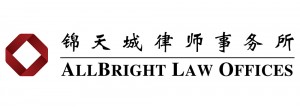By December 2021, the transition period for new asset management regulations was nearing its end, and trust companies have made remarkable progress in planning their transformations. During the transition period, regulation intensified with the issue of a string of new rules, prompting the trust industry to move towards greater compliance and return to the essence of the trust business.
New policies and impact
The new asset management regulations were followed by numerous complementary policies. While some were drafts for comment, it is obvious that regulators are placing greater focus on the trust industry, especially in the following aspects:
(1) Strengthening equity management and self-governance of trust companies. The Provisional Measures for the Administration of Equity of Trust Companies set out management requirements for the full process of regulating company equity, penetrative inspections of shareholder equity, administration of shareholder behaviour, etc.
(2) Regulating the organisational structure of trust companies. The Notice on Screening and Regulating the Business of Non-financial Subsidiaries of Trust Companies addresses such market disturbances as “certain trust companies engaging in regulatory arbitrage and concealment of risks through non-financial subsidiaries; conducting illegal connected transactions and engaging in improper funnelling of benefits”, requires trust companies to clean up their tier-one non-financial subsidiaries directly invested in and established using their own assets, or those indirectly invested in and established using such means as investment in asset management products; and restricts the scope of business of subsidiaries to avoid latent risks such as funnelling of benefits, delayed exposure of risks, or regulatory arbitrage. The Notice of the General Office of the China Banking and Insurance Regulatory Commission on Matters Relevant to Rectifying the Departments of Trust Companies Established Elsewhere (Draft for Comment) requires trust companies to relocate their middle and back-office departments back to their places of registration within one year, to reduce the risk of accumulating latent risks arising due to the lack of effective management and control over departments located elsewhere and affecting the transmission and implementation of regulatory policies.
(3) Enhancing oversight of the use of trust funds. The Provisional Measures for the Administration of the Fund Trusts of Trust Companies (Draft for Comment) strengthen the administration of trust funds and the trust business, regulate trust sales channels, determine nesting levels, limit the concentration of investments in non-standard products, specify the registration and reporting obligations of trust companies and enhance the compliance and reduce the risks of trust company products.
Reform under oversight
Data indicates that 11 trust companies were penalised in 2020, with total fines exceeding RMB18 million (USD2.9 million). Since 2021, 16 trust institutions have been penalised, with total fines and forfeitures exceeding RMB60 million. The main causes for penalties include illegal use of trust funds to pay land premiums, failure to timely disclose information as required, and lax pre-loan and post-loan reviews leading to the proceeds of large trust loans flowing back to the borrower’s account at another bank, causing inconsistency between the use of the loan proceeds and provisions of the trust loan contract.

Partner
AllBright Law Offices
Noticeable results and improved profits. In early 2021, several trust companies received 2021 targets of “reducing the size of trust channel business, gradually shrinking the size of non-compliant financing business and increasing the disposal of risk assets on and off the balance sheet”, and express directions to operate lawfully and compliantly. At Q3 2021, the size of single fund trusts focusing on channel business was RMB5.1 trillion, down 26% year-on-year, with the proportion dropping to 25%.
The size of financing trusts was RMB3.9 trillion, down 35% year-on-year, with the proportion dropping to 18.9%. In contrast, the trust industry realised operating income of RMB87.3 billion, up 3.7% year-on-year with most of such income derived from trust business income (accounting for 72.5%). Accumulated profit was RMB55.7billion, up 14.6% year-on-year.
Improved business structure. In the first three quarters of 2021, the top three targets of trust funds were: industrial and commercial enterprises (29%); the securities market (19.5%); and basic industries (12.5%). This is more in keeping with the macro requirements of supply-side structural reform and reduction of the real estate market bubble.
Direction of compliance
Returning to the roots. As the Implementing Measures for the Administrative Permission Matters of Trust Companies, issued by the China Banking and Insurance Regulatory Commission (CBIRC) encourage trust companies to engage in core trust business, regulators have consistently advocated for a return to the roots of trust, allowing trusts to leverage the advantages of their unique flexible system that straddles the monetary, capital and industrial markets. Additionally, trust companies should heed the overall requirements of the national development plan, serve the real economy and, in keeping with the development of the digital economy, roll out inclusive, green and service-oriented trust products.
Optimising internal compliance management. Other than having a compliance department, trust companies should construct a high-functioning compliance framework incorporating all internal compliance matters, clarifying the division of labour, strengthening co-operation, and enhancing internal operational efficiency while reducing compliance risks.

Paralegal
AllBright Law Offices
For trust companies, developing a compliance culture is the basis for compliance management and operation, and a key measure for controlling compliance risks and, in turn, business risks. Strengthening employee compliance training and integrating the requirements and criteria of compliance management into all aspects of operations can alleviate the pressure of compliance reviews while reducing risks.
It is imperative that companies maintain contact with regulators to stay appraised of the direction and details of regulatory requirements, co-operate with the regulators’ inspections, and implement corrections to enhance regulatory efficiency, which also promotes the overall, orderly development of the industry.
Innovation of business models. Amid industry-wide transformation, trust companies should heed both regulatory requirements and market demand. They should develop new products and business models to improve performance under the premise of lawful operation, controllable risks and commercial sustainability. Innovation could be explored in, for instance, equity and family trusts by tapping into the wealth management and inheritance needs of different groups of people; in customised trust services catering to specific needs to enhance product competitiveness; and in embracing national industrial policy by contributing to venture capital funds and government industrial investment funds, to provide equity financing for developing technology enterprises.
Wu Huijin is a partner and Meng Shiyu is a paralegal at AllBright Law Offices. Zhu Mengjun, an associate at the firm, also contributed to this article

AllBright Law Offices
11/F and 12/F, Shanghai Tower
No. 501 Yincheng Middle Road
Pudong New Area
Shanghai 200120, China
Contact details:
Tel: +86 21 2051 1000
Fax: +86 21 2051 1999
Email:
www.allbrightlaw.com





















